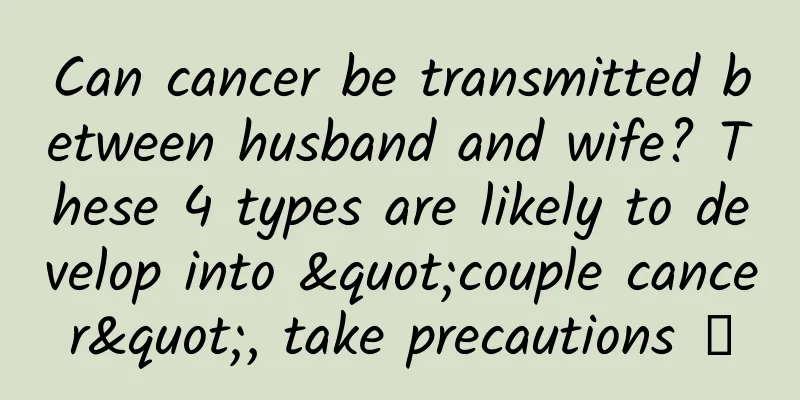What should I do if I have hemorrhoids?

|
Hemorrhoids are something we often hear about in our daily lives. Many people have suffered from hemorrhoids. Hemorrhoids are one of the most torturous of all diseases. People with hemorrhoids are simply unable to sit or stand, and cannot eat or sleep well. Hemorrhoids are generally caused by long-term and repeated anal bleeding due to constipation or excessive force during defecation. So what should you do if you have hemorrhoids? Let me explain it to you in detail below. Typical symptoms of hemorrhoids: restlessness (83%), repeated bleeding (80%), blood in stool (75%), constipation (73%), prolapse of hemorrhoids (70%), bloating (65%) Usually, hemorrhoids do not require treatment unless they cause symptoms. Taking a stool softener or psyllium can relieve constipation and the straining during bowel movements that accompanies constipation. Hemorrhoidal bleeding can be treated by injecting a drug that creates scar tissue and blocks the veins. This treatment is called injection sclerotherapy. As the saying goes, "Nine out of ten people have hemorrhoids", and the main symptoms of hemorrhoids are dry and hard stools and pain and bleeding after defecation. If there is pain during defecation and blood in the stool, it is external hemorrhoids; if there is bleeding after defecation and the amount of bleeding is heavy, it is mostly internal hemorrhoids. Here are some tips to prevent and treat blood in stool: 1. Keep bowel movements smooth; develop the habit of daily bowel movements. Hemorrhoid bleeding is mostly caused by constipation. Straining during defecation increases abdominal pressure, causing increased pressure in the hemorrhoidal veins and rupture and bleeding. Other causes are dry and hard stools, which rub the hemorrhoidal veins when passing through the anus, causing bleeding. Eating more vegetables and drinking more water can prevent constipation. For those who have already suffered from constipation, eating more honey or sesame oil can help moisten the intestines and promote bowel movements. Regular bowel movements and eating less spicy foods can help reduce hemorrhoidal bleeding. 2. Prevent anal infection and strengthen exercise. Ruptured hemorrhoids are easily contaminated by stool and become inflamed. Therefore, for those who have already developed hemorrhoid bleeding, it is necessary to strengthen anti-inflammatory measures. You can use 1:5000 potassium permanganate solution (that is, put 1 gram of potassium permanganate in 5000 ml of warm water to make the solution light purple-red) to soak the anus 2-3 times a day; you can also use Mayinglong Hemorrhoid Ointment to inject into the anus, which has the effects of laxative, anti-inflammatory and hemostatic. In addition, increased exercise can improve blood circulation and reduce pressure on the hemorrhoidal veins. In addition, you can kneel on the bed, take the chest-knee position, and practice anal lifting exercises every day, which is also effective in reducing hemorrhoidal bleeding. 3. You can try a folk remedy: take a live field snail, open its lid, put in a little borneol, and wait until the snail meat turns into water. Then use a cotton swab or gauze strip to dip the water and apply it on the hemorrhoids. It is said that applying it 1-2 times will have a good effect. Large internal hemorrhoids and those that do not respond to injection sclerotherapy can be treated with rubber band ligation, which causes the hemorrhoid to shrink and fall off painlessly. Vacuum ligation can be performed at intervals of 2 weeks or longer. Generally, 3 to 6 ligations are required to cure the disease. Treatment may also include using lasers, infrared light (infrared photocoagulation), or an electrical current (electrocoagulation) to destroy the hemorrhoids. If these methods fail, surgical resection may be done. If hemorrhoids are painful and blood clots form, they can be treated with sitz baths, local anesthetic ointments, or local compression. After a short period of treatment with these methods, the pain and swelling will gradually subside, but the blood clot will take 4 to 6 weeks to disappear. If rapid pain relief is needed, the vein can be cut open to remove the blood clot. The best way to prevent hemorrhoids is to develop good bowel habits. It is best to go to the toilet as soon as you get up in the morning. Be careful not to take too long to defecate. Pay attention to the cleanliness of the anus and don't wipe your butt too hard to avoid anal injury. If conditions permit, it is recommended to wash with warm water after defecation. This is very effective in preventing the occurrence of hemorrhoids. |
<<: How to treat hemorrhoids non-surgically?
>>: What should women do if they have pain in the lower left abdomen during menstruation?
Recommend
Will the removal of one fallopian tube affect fertility?
I believe everyone knows that fallopian tubes are...
What causes breast discomfort?
Most women may experience breast pain, especially...
Sudden heavy bleeding during pregnancy
Except for the menstrual period, women of all gen...
Symptoms and recognition of ectopic pregnancy
Many people are not clear about the specific symp...
Calf soreness during menstruation
Most people feel uncomfortable during menstruatio...
Who are the authors of the Four Great Classical Novels of China? What are the Four Great Classical Novels of Europe?
I believe everyone knows that the four great class...
If the belly grows forward, it means the baby is a boy or a girl.
Many mothers are very emotional when they are pre...
A must-read for kidney patients on dialysis: How to effectively control high blood pressure, 5 methods worth learning!
For patients on dialysis, effective control of hi...
Psychological care and support during IVF treatment
In vitro fertilization (IVF) is an assisted repro...
Is hysteroscopic polyp removal painful?
Hysteroscopic surgery is a relatively advanced su...
How to maintain after uterine fibroid surgery?
Uterine fibroids are a disease with a very high i...
What should you pay attention to when you have your first menstrual period after childbirth?
Many women must pay attention to body conditionin...
What causes blood in urine?
The presence of blood and stinging pain when urin...
A 2-year-old girl died after accidentally eating weight-loss chocolate. Why was this chocolate so "poisonous"?
Recently, a 2-year-old girl accidentally ate seve...









